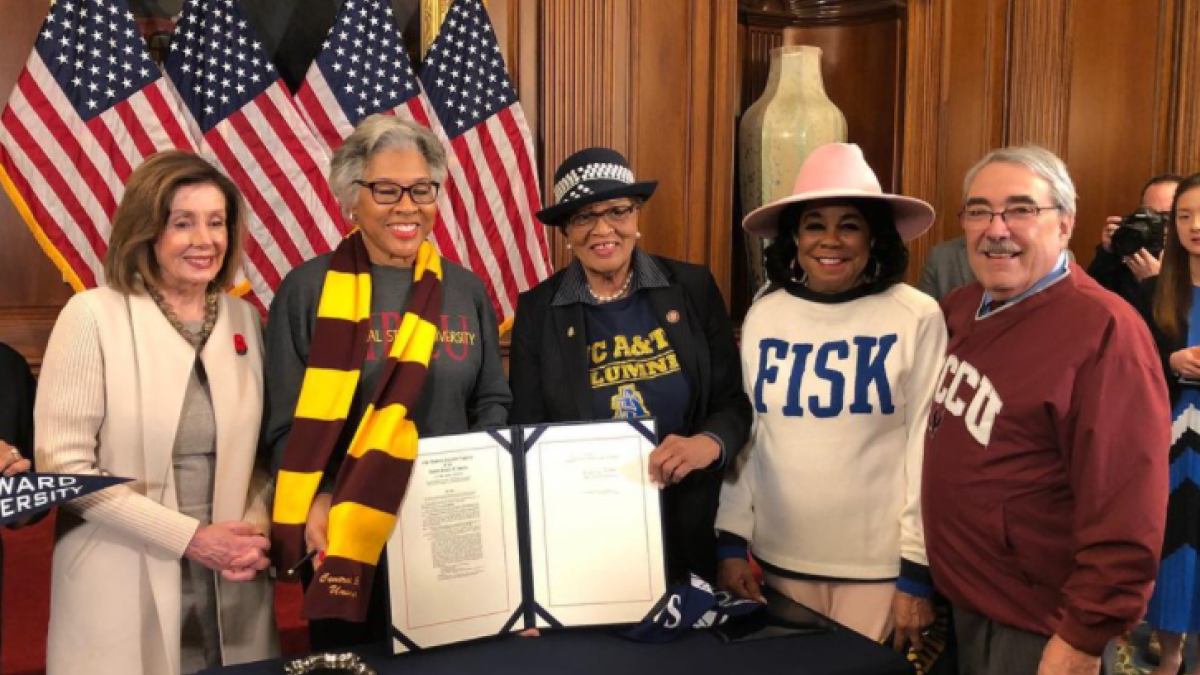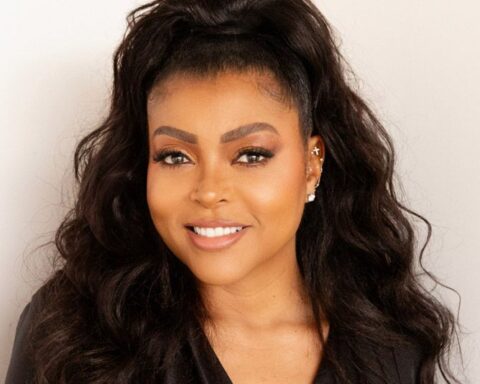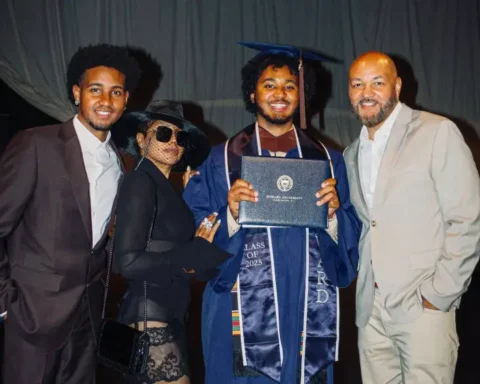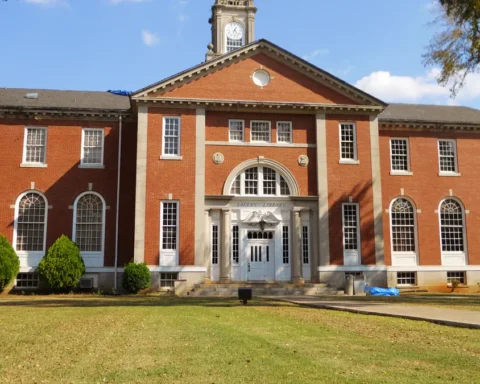Congresswoman Alma S. Adams, Ph.D. (NC-12), founder and co-chair of the Bipartisan Historically Black Colleges and Universities (HBCU) Caucus and an HBCU art professor of 40 years, introduced the HBCU Arts Act, investing in arts education and conservation at HBCUs.
“Art is a universal language that allows people everywhere to experience and celebrate unique cultures and communities. It expands our worldview,” said Congresswoman Alma Adams. “Unfortunately, art programs and departments are often among the first ones cut when schools face financial hardship. Through the HBCU Arts Act, we can provide a historic investment to our HBCUs and ensure these programs remain accessible to our students of color for generations to come.”
The HBCU Arts Act aims to remove financial and other barriers to arts education and conservation for HBCUs, making these programs more accessible to their students. This bill recognizes the importance of fostering a diverse generation of artists and art professionals who are essential for creating, conserving, educating, and supporting African American art.
Specifically, the HBCU Arts Act:
- Provides financial and other assistance to students in arts, arts education, and cultural programs.
- Establishes outreach programs and development offices for arts, arts education, and cultural arts departments.
- Provides comprehensive wraparound services for arts, arts education, and cultural students, including faculty and peer mentorship, work-based learning opportunities, guidance counseling, and career advising.
- Exhibits, maintains, monitors, and protects African American art collections in exhibition and in storage.
- Provides well-paid apprenticeship, internship, and fellowship opportunities to students in arts, arts education, and cultural programs through partnerships with nonprofit arts, arts education, and cultural institutes.
The HBCU Arts Act has a number of prominent organizations endorsing the bill, including Americans for the Arts, and the National Association for Music Education.
“As a Howard University graduate with a background in business and art history, I witnessed how HBCUs foster artistic excellence and creative leadership,” said Americans for the Arts CEO Erin Harkey. “The HBCU Arts Act is a smart, crucial investment that addresses historical funding inequities and establishes the support systems our students deserve. This legislation aligns with Americans for the Arts’ mission to ensure that arts and culture enrich every community. We fully endorse this bill and are prepared to mobilize our national network of arts leaders to amplify its impact. We commend Representative Adams for her vision in creating sustainable pathways that will strengthen HBCU arts programs and the future of American culture.”
“The National Association for Music Education (NAfME) is proud to once again endorse the HBCU Arts Act, reintroduced by Congresswoman Alma Adams,” said Dr. Deborah Confredo, President of the National Association for Music Education. “This important legislation addresses longstanding inequities in funding for arts programs at Historically Black Colleges and Universities. These institutions have historically nurtured extraordinary artistic talent, often in the face of systemic barriers. By providing targeted support to strengthen music and arts programs at HBCUs, this bill takes a meaningful step toward diversifying the pipeline of professional artists and educators. Artistic expression is both a reflection of and a pathway to understanding the complexity of human experience. Ensuring that creators from a broad spectrum of cultural and historical backgrounds are supported in their development is essential to the health and vitality of our field. NAfME remains steadfast in its commitment to equitable access to high-quality music and arts education, and we strongly urge the 119th Congress to advance this legislation.”
“HBCU Art Programs and the National Alliance of Artists from Historically Black Colleges and Universities (NAAHBCU) promotes art and art education with HBCUs, fostering artistic and life skills for students, and providing opportunities for artists and art professionals,” said Dr. Willie Hooker, Professor of Art at North Carolina A&T University.
HBCUs have an outsized impact on art:
- HBCUs have a long-standing legacy of producing African American artists, fostering the careers of artists from Augusta Savage to Megan thee Stallion and everyone in between.
- HBCUs are some of the most comprehensive collectors of art produced by artists of color. The Hampton University Museum remains the country’s oldest African American museum and houses one of the largest collections of African, African American, and Indigenous arts in the United States.
- Arts and cultural production is a quickly growing economic center. In 2022, arts and cultural economic activity accounted for 4.3% of the GDP, or $1.1 trillion.
The bill is cosponsored by (12): Reps. Jasmine Crockett (TX-30), Sheila Cherfilus-McCormick (FL-20), Joyce Beatty (OH-03), Suzanne Bonamici (OR-01), Shontel Brown (OH-11), Eleanor Holmes Norton (DC-At-Large), Melanie Stansbury (NM-01), Frederica Wilson (FL-24), Terri Sewell (AL-07), Jonathan L. Jackson (IL-01), Valerie Foushee (NC-4), Maxwell Frost (FL-10), Andre Carson (IN-7).





